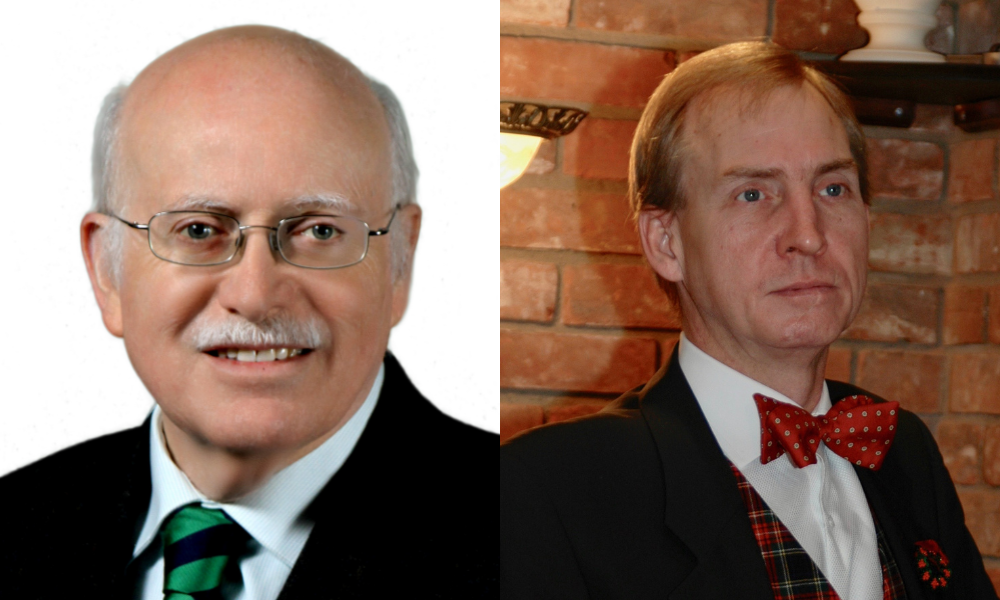
The motion asks the LSO to make a public salary disclosure on or before Dec. 31, 2022

Some Law Society of Ontario benchers are bringing a motion on May 26 Convocation that requires the LSO to publicly reveal the number of employees earning over $199,999 but less than $3000,000, and the names, positions, salaries, and total taxable benefits of employees paid $300,000 or more.
Wynna Brown, the LSO director of external relations and communications confirmed to Law Times that the motion will be on the agenda for May Convocation.
Moved by Gerard Charette, a senior associate in Windsor, and seconded by Cecil Lyon, a lawyer and mediator in Ottawa, the motion asks the LSO to direct its chief executive officer, Diana Miles to make a public salary disclosure on or before Dec. 31, 2022, and in each year after that.
The motion follows the legislature’s lead in passing the Salary Disclosure Act, requiring a public body to disclose their salaries. Charette says that the LSO should follow suit as a regulator focused on the public interest.
There is an information gap in the salary disclosure of LSO staff, and Lyon says members are entitled to receive those numbers. “We brought this motion to put the issue front and centre, and it’s up to Convocation whether or not it wants to vote in favour or against openness and transparency.”
LSO members have legitimate needs, and benchers serve their demands. Therefore, he says benchers have a duty to provide information that allows members to form a position on law society governance. “We are governing the profession in the interests of the public, and part of that is transparency and openness.”
Charette says LSO members often do not have access to relevant information. The motion’s goal is to provide the data that allows them to make informed decisions about whether the law society is well-governed or if any part of governance needs improvement, he says.
The motion is “a matter of putting the members in the driver’s seat so they can make their own decision,” he says.
Lyon says he is concerned the motion will not be presented to Convocation for an open debate accessible to the media but will be restricted only to members.
“I fear that with this particular issue, there will be powers at work to try and prevent it from coming to open Convocation.”
The LSO has never disclosed salaries, so he says the motion calls for a new directive which is a concern because people do not like new things. “There might be a reaction against that,” he says. However, “the overriding and overarching message is openness and transparency, and whether it’s new doesn’t take away from the fact that there is an information gap for our members.”
Similarly, Charette says it is necessary to publicly hold the salary disclosure debate because it sets a general policy issue and does not apply to any particular employee. He says transparency is essential for the public and benchers who should know how much the LSO pays staff.
“It’s a matter of doing the right thing for the members to understand the pay scales better, and it doesn’t matter whether people are lawyers or not. The motion speaks to any employee, and it will allow the members to formulate their own opinions based on adequate sourcing of information.”
The LSO has a compensation committee and expert staff, but he says it is also a quasi-public body. He says that members should decide whether the law society can begin getting staff at a more cost-effective price with many employable talents. “It’s their call, not mine, but my job is to get them the information.”
While some LSO members’ demands could be out of self-interest, Gerard says others are genuine because they push clients’ real needs. “The central part of the public interest is to make sure that Ontarians who seek the services of lawyers have their needs met, which means meeting the legitimate demands of the members. So, one follows the other.”
He says he has reviewed some of the salary data but not all and that members are entitled to receive the information to decide whether the salary levels are appropriate.
Member of the LSO Compensation Committee Robert Burd says he would approach the debate open-mindedly because no supporting material reveals why Gerard and Lyon are seeking the motion as well as the benefits and downsides of not publicly disclosing salaries.
When there is a matter before the LSO, Burd says the standard procedure is that a committee pinpoints the issue, does consultations, and makes a report and recommendation that ultimately goes to Convocation for a debate. However, this motion did not take the usual avenue and will head straight to the Convocation floor.
“The motion doesn’t come attached with any substance other than the request to publish salaries of a certain dollar value or higher,” he says. “I don’t have an opinion on it yet. I’d like to hear the position of the movers and then my colleagues.”
He says benchers should allow Miles to respond to the motion because it impacts her and her staff. “Most benchers are probably in the dark about the advantages and disadvantages and why we would want to report it [salaries].”